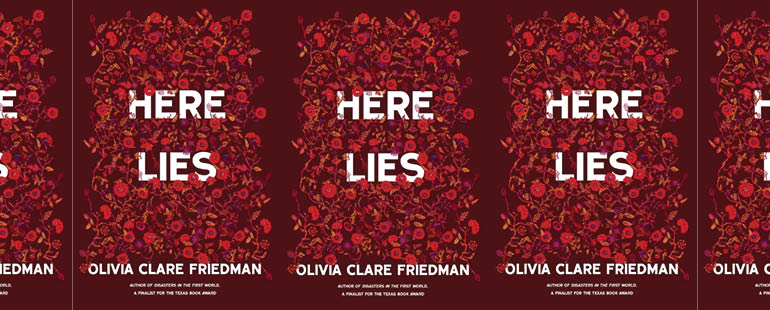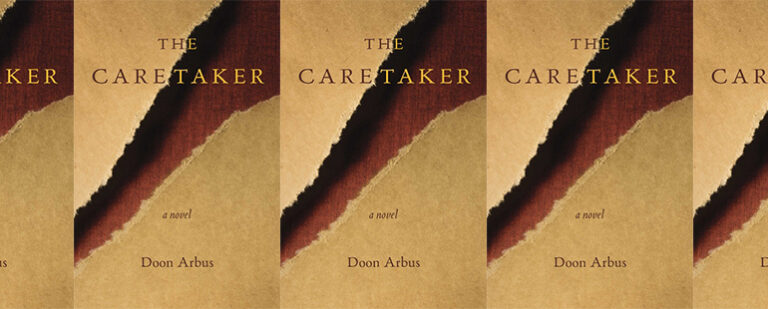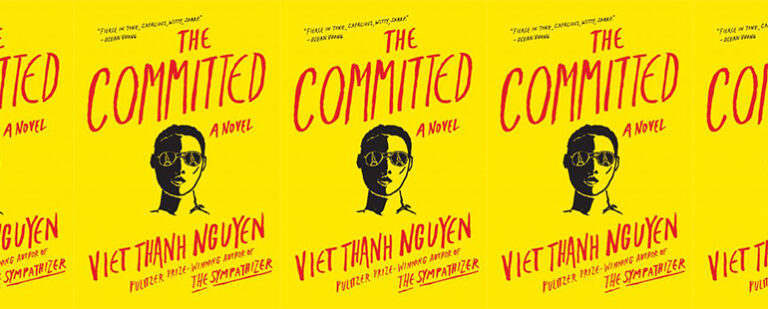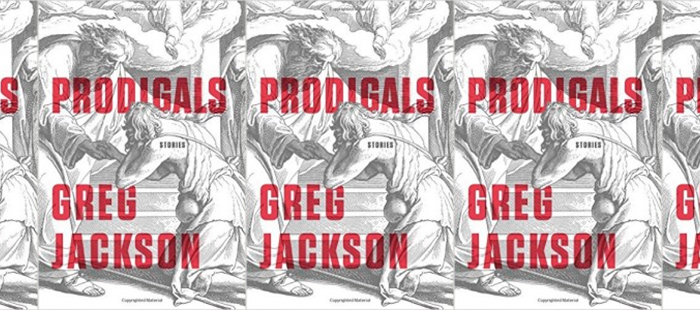Death Rituals and Found Families in Olivia Clare Friedman’s Here Lies

Here Lies
Olivia Clare Friedman
Grove | March 22, 2022
In Olivia Clare Friedman’s debut novel, Here Lies, Alma, a young woman from a near-future Louisiana, battles to reclaim her mother’s ashes from the state, which has banned burials and closed every graveyard. The decree is presumably the government’s latest last dash effort to mitigate the effects of climate change—a gesture to preserve livable, arable land. This too little, too late approach to climate change is likely familiar to readers: indeed, in Greece, where land is scarce and the price of a grave is exorbitant, most families rent a gravesite for three to five years before exhuming the body of their loved one. In the United States, insurance prices for homes in coastal regions rise while basin states like Colorado and Utah make decisions about whose water supplies to cut. Too often we allow these injustices, finding it easier to suffer what we deem a small inconvenience than to face the impossible equations that environmental crises pose. In Here Lies, however, Alma draws a line. She might tolerate the injustices the world throws at her, but she won’t let her loved ones tolerate them.
This line means tending to her mother’s final wish: to be buried.
In her quest, Alma assembles a found family: Bordelon, a pregnant nineteen-year-old; Pegeen, the local librarian; and Josephine, a Catholic notary. Indeed, Friedman’s portrayal of connection between these women is perhaps the most genuine and affecting aspect of the novel. It’s no small comfort to be reminded that our interconnectedness cannot be extinguished, even by the very real threats posed by climate change. Still, it’s worth mentioning that not all women are dealt the same unlucky hand. Friedman steers clear of identifying her characters’ races and issues of class are glossed over, which at times, make their backstories feel a bit sanitized and contrived.
Even so, the novel does have many moments of electric energy. To name a few: Alma sees, for the first time, a crepe myrtle she must have driven past a dozen times. “I imagine myself in miniature,” Alma says, looking at a single bloom, “I nested within it. I imagined Bordelon curled and nesting in the blossom next to mine. We were just children, curled up that way.” Josephine and Alma pull weeds in the garden, a kind of prayer. Alma and Bordelon eat pizza and play cards in a motel bed during a rainstorm in Nevada. Afterward, Alma dreams that the blue star fern Josephine bought from a man in Lubbock grows so huge it covers the room, hiding the women, guarding them. There is a protective quality to nature throughout the book, and this quality deepens the reader’s grief over its transience. One gets the sense that the natural world is also a member of Alma’s found family, a character she gets to know over the course of the novel. It’s no surprise that Friedman wrote poetry before she began writing fiction—her prose has a lyrical quality.
This closeness to the natural world is confused when Alma oddly does not seem disturbed by the more frequent occurrence of violent storms—her grandmother’s property in St. Genevieve, Louisiana apparently withstands rising water and powerful hurricanes, and all media programming bears a striking resemblance to our own. Alma and Bordelon are “kicking and living” as Alma puts it, as we all are, from one catastrophe to the next. But it’s not the living whose rights Alma is up in arms to protect—it’s the dead. The dead, she believes, should have the right to choose what’s done with their bodies; the living are tasked with honoring their wishes, no matter how unreasonable. Perhaps this cause has a kind of canny aptness—it is the dead, after all, who have caused our current climate crisis, and when we are dead the living will be tasked with tidying up our mess. Although Alma begins to understand that family need not be blood-bound, she fails to see that grieving isn’t tied to any one ritual, that it is the living who must find a way to come to terms with death, not the ones who’ve died.
The world around Alma is collapsing and she is left to address what still matters. Of course, it’s living that matters, that will always matter, as long as one is alive. In the recently released, politically divisive film Don’t Look Up, scientists are flummoxed when people continue to take their lunch breaks, to go to music festivals, to meet one another for overpriced cocktails, despite evidence that their worlds will soon be crushed by a massive meteor. Likewise, Alma and her friends drink Red Stripe, watch videos of jellyfish and snakes at the library with the sound off, gossip about their guitar playing ex-boyfriends. And it’s worth asking ourselves why these things do matter, why they make us feel briefly, routinely, our common humanity. Why is it that once we’ve found our people, we are constantly orbiting them, trying in different ways to keep proximity with them, even after they have died? There are no simple answers and, though Here Lies posits a few, it’s somehow more satisfying that we don’t come out of the book squarely in any camp.


